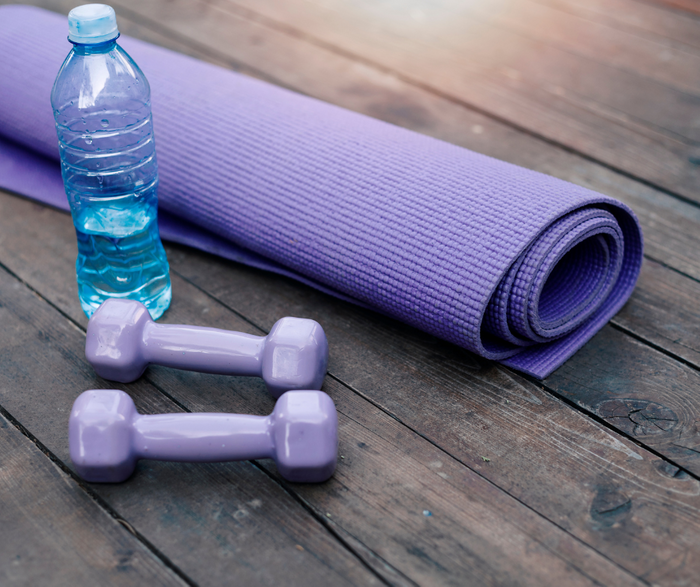As we step into the New Year, let's explore the profound impact of exercise on hormone health. Dive into the transformative effects of prioritizing physical activity, not only as a stress management tool but also as a vital component in maintaining hormonal balance as we embark on a journey of self-improvement this year.
Revitalize Your Hormones: The Transformative Power of Exercise
Mariah Prince-Allen, DNP, FNP-BC

Exercise and Hormone Balance
Regular exercise is a fantastic ally for hormonal equilibrium. It can help regulate insulin, cortisol, and other hormones, creating a harmonious environment within your body. By engaging in physical activity, you're supporting your endocrine system, which plays a key role in managing stress and maintaining overall well-being.

Keeping Stress Hormones in Check
The new year can bring both joy and stress. Exercise acts as a natural stress-reducer by lowering cortisol levels. Elevated cortisol, often a result of stress, can disrupt hormone balance, impacting everything from sleep to metabolism. Incorporating regular exercise helps keep cortisol in check, contributing to a more balanced and resilient hormonal system.

Strategic Timing for Exercise
Make exercise a priority, especially after meals, to avoid the rapid fluctuations in glucose levels. This strategic approach helps mitigate issues such as brain fog, sleep disruption, inflammation, weight gain, and hormone imbalance associated with erratic blood sugar levels.

Addressing Hormonal Fluctuations
The hormonal fluctuations that can accompany certain lifestyle choices can be effectively managed through consistent physical activity. Exercise promotes insulin sensitivity, aiding in the effective processing of sugars and reducing the risk of hormonal imbalances associated with dietary choices.

Prioritizing Hormone-Boosting Exercise
Consistency is Key: Aim for a regular and consistent exercise routine to maintain stable hormone levels. Even short, frequent workouts can have a significant impact on hormonal balance.
Timing Matters: Prioritize exercise after meals to regulate glucose levels and avoid sharp fluctuations.
Diverse Workout Routine: Incorporate a variety of exercises, including cardiovascular and strength training, recognizing their unique contributions to hormone regulation.
Mind-Body Connection: Practices like yoga and meditation can further support hormone health by reducing stress and fostering a strong mind-body connection.
Rest and Recovery: Allow your body adequate time to rest and recover, as overtraining can stress the body and disrupt hormonal balance.
Gift Yourself a Harmonious Hormonal New Year
Amidst the transition into the New Year, consider exercise as a valuable gift to your hormone health. Beyond physical fitness, it represents a holistic approach to well-being that resonates from within. Prioritize exercise in the coming year to contribute to a harmonious, hormonally balanced version of yourself. Let's celebrate the powerful connection between exercise and hormone health, embracing a resilient, balanced, and well-being-focused start to the year.
